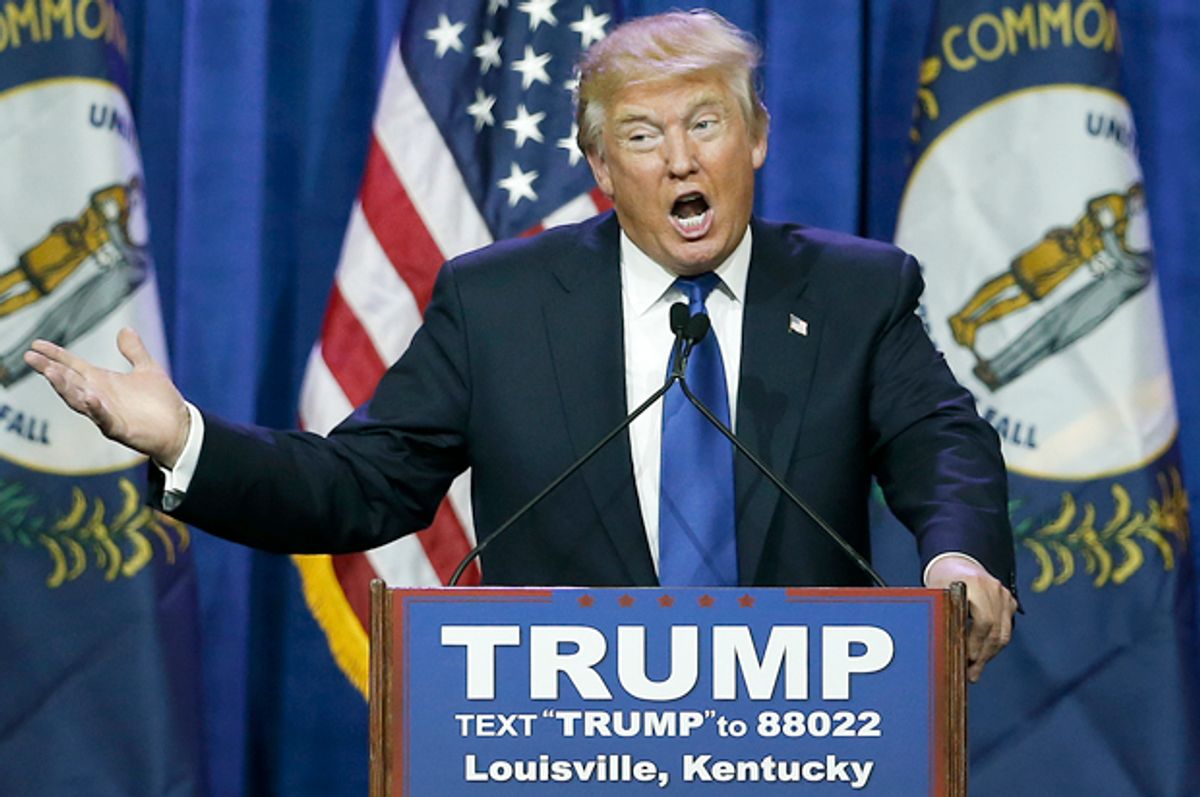A new report indicates that President Donald Trump asked a pair of American intelligence officials to publicly state that there was no evidence his presidential campaign colluded with the Russian government during the 2016 election.
The report also indicates that they refused to do so.
[scriptcode src="//player.tout.com/embeds/7qsqz3.js?content_brand_uid=ff62d1&width=auto&height=auto&autoplay=true&element_id=tout-7qsqz3-target"][/scriptcode]
The intelligence officials in question were Daniel Coats, the Director of National Intelligence, and Adm. Michael S. Rogers, the director of the National Security Agency, according to a report by the Washington Post. Trump made this request after FBI Director James Comey confirmed in his congressional testimony in March that the bureau was investigating "the nature of any links between individuals associated with the Trump campaign and the Russian government and whether there was any coordination between the campaign and Russia’s efforts." Both Coats and Rogers refused to accede to Trump's request on the grounds that it was inappropriate and that the statements he was asking them to make were false.
Trump's requests were perceived as an effort to discredit the FBI investigation, with a senior NSA official documenting Trump's conversation with Rogers in an internal memo (it is unclear whether the DNI office did something similar for Trump's conversation with Coats).
In related news, former FBI Director Robert Mueller (who is now overseeing the investigation into the Russia scandal for the Department of Justice) has received briefings on the memoranda written by Comey chronicling details of his conversations with Trump, according to a report by CNN. This may cause some logistical problems in terms of Comey's impending congressional testimony surrounding his firing by Trump, with Congress indicating that they plan on working with Mueller to try to smooth out any potential complications.

Shares